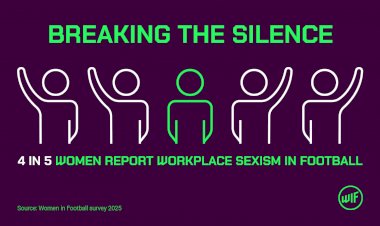Op-Ed:Wealth Transfer Is The Next Civil Rights Frontier For Black Women
Black Women’s Equal Pay Day falls on July 10 this year—more than halfway through 2025. That marks how long the average Black woman must work to earn what a white man […] The post Op-Ed:Wealth Transfer Is The Next Civil Rights Frontier For Black Women appeared first on Essence.

Black Women’s Equal Pay Day falls on July 10 this year—more than halfway through 2025. That marks how long the average Black woman must work to earn what a white man made by the end of 2024. It’s a staggering illustration of just how persistent and punishing the racial and gender wage gap remains.
But this moment calls for a broader conversation, because wages are only one part of the economic equation. What happens after the paycheck matters just as much. Inheritance. Property. Long-term financial autonomy. For Black women, the next civil rights frontier isn’t just about what we earn. It’s about what we keep and protect. It’s about wealth transfer.
And it’s not just about access to opportunity. It’s about confiscation. We’ve seen what happens when Black communities do succeed.
Take Greenwood, the thriving Black business district in Tulsa, Oklahoma. In 1921, white mobs, sanctioned by local government and aided by law enforcement, burned it to the ground in what would later become known as the Tulsa Race Massacre. More than 1,000 Black homes and businesses were destroyed. Insurance companies denied claims. Survivors received no restitution. And the generational wealth that Black families had painstakingly built—much of it led by women—was erased overnight.
That legacy of wealth erasure didn’t end in Tulsa. It has continued through eminent domain seizures, discriminatory tax assessments and the modern legal structures that make it nearly impossible for Black families to pass on property without government interference.
The recent passage of the Republican-backed budget reconciliation bill, known as the One Big Beautiful Bill Act, further reinforces this long-standing pattern of systemic exclusion. Effective in 2026, the bill permanently increases the federal estate and gift tax exemption to $15 million for individuals and $30 million for married couples. While that sounds generous, it’s a mechanism to further entrench dynastic wealth for the already rich.
But let me be clear that there are elements of this bill that, with proper planning, can increase flexibility. The permanence of this threshold provides much-needed certainty for estate planners and removes the anxiety around future “tax cliffs” that have plagued small and family-owned businesses for decades. In some cases, this stability opens new doors for strategic gifting, business succession, and long-term legacy planning. There are also potentially beneficial deductions for closely held businesses, especially when paired with other well-known tools like irrevocable trusts or qualified small business stock exclusions.
The catch? These benefits are only accessible if you plan. And historically, Black families—especially Black women—have been excluded from the systems and relationships that make such planning possible.
That’s where the civil rights dimension becomes clear. According to Caring.com, only 27.5% of Black adults have an estate plan, compared to 44% of white adults. Cultural taboos around death, distrust of the legal system, and lack of access to affordable legal advice all contribute to the gap. Many Black families still rely on informal understandings or “just in case” conversations, without the legal tools needed to protect assets from probate courts, creditors, or the IRS.
So, while these provisions in the reconciliation bill may not, on their face, create direct harm to Black families, their benefits—like most wealth-building tools—require access, strategy and institutional knowledge. Without those, opportunities remain out of reach. That’s the real inequity: not necessarily the text of the law, but the uneven ability to leverage it.
This is why estate planning must be reframed not as a luxury but as an essential part of economic justice. Black women, who often serve as both the breadwinners and caretakers in their families, need culturally competent, politically informed and financially sound guidance. We need resources that help us navigate tax and estate law with the same confidence we bring to every other challenge.
We also need to shift our mindset. Too many of us were taught that wills are only for the wealthy or the elderly—that thinking about death is morbid or unfaithful. In truth, planning is the ultimate act of love and liberation. It allows us to protect what we’ve built, shield our families from legal chaos and ensure our intentions—not the state’s default rules—shape our legacy.
As our nation’s tax code evolves, we must evolve with it, not by resisting change, but by engaging with it strategically. The reconciliation bill isn’t the enemy, but ignoring it could be. The real danger is continuing to let systemic barriers prevent Black families from accessing the full range of financial tools available to them.
This is how the system continues to privilege inherited white wealth while penalizing newly earned Black wealth. And unlike the burning of Black Wall Street, this erosion happens quietly, on paper, in tax codes, through trusts, probate courts, and legalese that disproportionately excludes our communities.
For Black women, who often serve as both income earners and caregivers, wealth builders and legacy stewards, the impact is especially acute. We’re working longer hours, earning less, and now facing steeper barriers to transferring the little we’ve managed to build.
And yet, estate planning remains underutilized. Less than one-third of Black adults have a will or trust in place. For Black women, who often juggle caregiving duties, entrepreneurship, and financial head-of-household roles, estate planning is not just necessary—it’s urgent. Without it, families are more vulnerable to probate court delays, exorbitant legal fees, avoidable tax liabilities, and the state determining the distribution of our assets against our wishes.
This is why wealth transfer must be treated as a civil rights issue. Just as we fought for access to the ballot box, we must now fight for access to capital, control over our estates, and legal protections for what we’ve built.
We need more than awareness; we need policy. That includes reversing harmful provisions in the reconciliation bill, reinstating valuation protections for family businesses, making estate planning resources accessible, and investing in culturally competent legal and financial services in our communities.
But policy alone won’t save us. We must also debunk the myth that estate planning is for “rich white people.” We must normalize talking about wills, trusts, asset protection and power of attorney in our families. Because without these conversations, we risk losing more than money; we risk losing control over our futures. This requires a shift in our mindsets.
Black women are already doing the work. We lead in education, entrepreneurship and civic engagement. We are raising the next generation while caring for the last. But labor without legacy is a trap. And pay without protection is a mirage.
As we observe Black Women’s Equal Pay Day, let’s remember: it’s not just about getting what we’re owed. It’s about keeping it. It’s about protecting it. It’s about passing it on.
Because if the fight for wages was about dignity in life, then the fight for wealth is about justice in legacy.
Jehan Crump‑Gibson is the founder and managing partner of Great Lakes Legal Group in Southfield, MI, where she specializes in probate & estate planning, business, commercial and real estate law.
TOPICS: Black Women’s Equal Pay Day civil rights wealthThe post Op-Ed:Wealth Transfer Is The Next Civil Rights Frontier For Black Women appeared first on Essence.

























